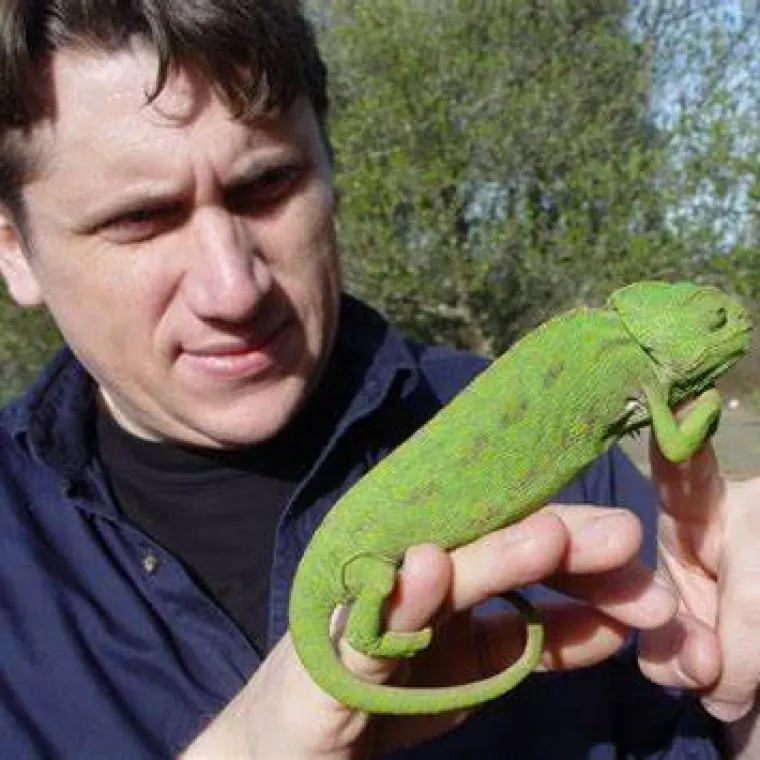John Wiens

Office Location: BSW 318
Lab Location: BSW 136 and 138
Links
Positions and Education:
- Professor, Ecology and Evolutionary Biology, University of Arizona, 2013–present
- Associate Professor, Ecology and Evolution, Stony Brook University, 2006–2012
- Assistant Professor, Ecology and Evolution, Stony Brook University, 2002–2006
- Associate Curator, Carnegie Museum of Natural History, 2000–2002
- Assistant Curator, Carnegie Museum of Natural History, 1995–2000
- Ph.D., Zoology, University of Texas at Austin, 1995
- B.S., Systematics and Ecology, University of Kansas, 1991 (summa cum laude)
Honors and Awards:
- ISI Highly Cited Researcher, 2014
- President’s Award, American Society of Naturalists, 2011 (for outstanding paper published in the American Naturalist in 2010) for Kozak and Wiens 2010
- BIOS Distinguished Lecturer, Univ. Nevada-Las Vegas, 2009
- Kirschner Lecture, Department of Zoology, Washington State University, 2008
- Elected to Council, Society of Systematic Biologists (2003–2005)
- Elected to Board of Governors, American Society of Ichthyologists and Herpetologists (2003-2008)
- National Science Foundation Graduate Research Fellowship 1991
- Outstanding Senior Honors Thesis in Biology, Univ. Kansas, 1991
Editorial Work:
- Editor-in-Chief, Quarterly Review of Biology, 2007–2010
- Editor, Quarterly Review of Biology, 2006–2007, 2010–present
- Associate Editor, Ecology Letters, 2009–present
- Associate Editor, BMC Evolutionary Biology, 2011–present
- Associate Editor, Ecography, 2007–2009
- Associate Editor, American Naturalist, 2005–2009
- Associate Editor, Evolution, 2001–2003
- Associate Editor, Systematic Biology, 1996–2000
- Associate Editor, Herpetologica, 1996–2000
- Editorial Board, PLoS Currents: Tree of Life, 2010–present
- Editorial Board, Journal of Herpetology, 2001–present
- Editorial Board, Copeia, 1999–2008
- Editorial Board, Systematic Biology, 1995–1996
Research Interests:
Research in Wiens’ lab has three main areas: (1) using an integrative phylogenetic approach to address general conceptual questions in evolutionary biology and ecology, (2) the theory and methods of phylogenetics, and (3) the phylogeny, evolution, and ecology of reptiles and amphibians. Within these general areas, we address a variety of specific topics, including species richness patterns, speciation, niche evolution and conservatism, life-history evolution, adaptive radiation, ecological diversification, rates and patterns of morphological change, phylogenomics, and responses of species to climate change. We combine collection and analysis of genetic, morphological, ecological, and physiological data (in the lab and field) with bioinformatic, computational, and theoretical approaches.
Selected Publications:
- Wiens, J. J. 2016. Climate-related local extinctions are already widespread among plant and animal species. PLoS Biology 14:e2001104.
- Streicher, J. W., J. A. Schulte, and J. J. Wiens. 2016. How should genes and taxa be sampled for phylogenomic analyses with missing data? An empirical study in iguanian lizards. Systematic Biology65:128–145.
- Wiens, J. J., R. T. Lapoint, and N. K. Whiteman. 2015. Herbivory increases diversification across insect clades. Nature Communications 6:8370.
- Wiens, J. J. 2015. Faster diversification on land than sea helps explain global biodiversity patterns among habitats and animal phyla. Ecology Letters 18:1234–1241.
- Wiens, J. J. 2015. Explaining large-scale patterns of vertebrate diversity. Biology Letters11:20150506.

